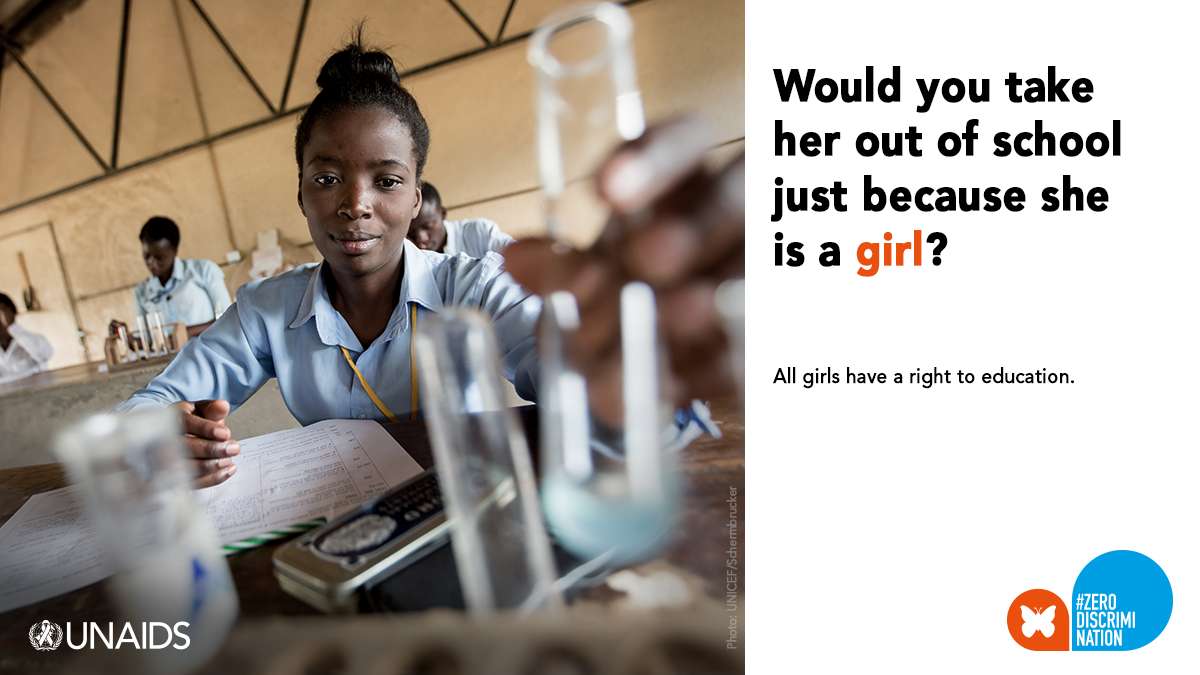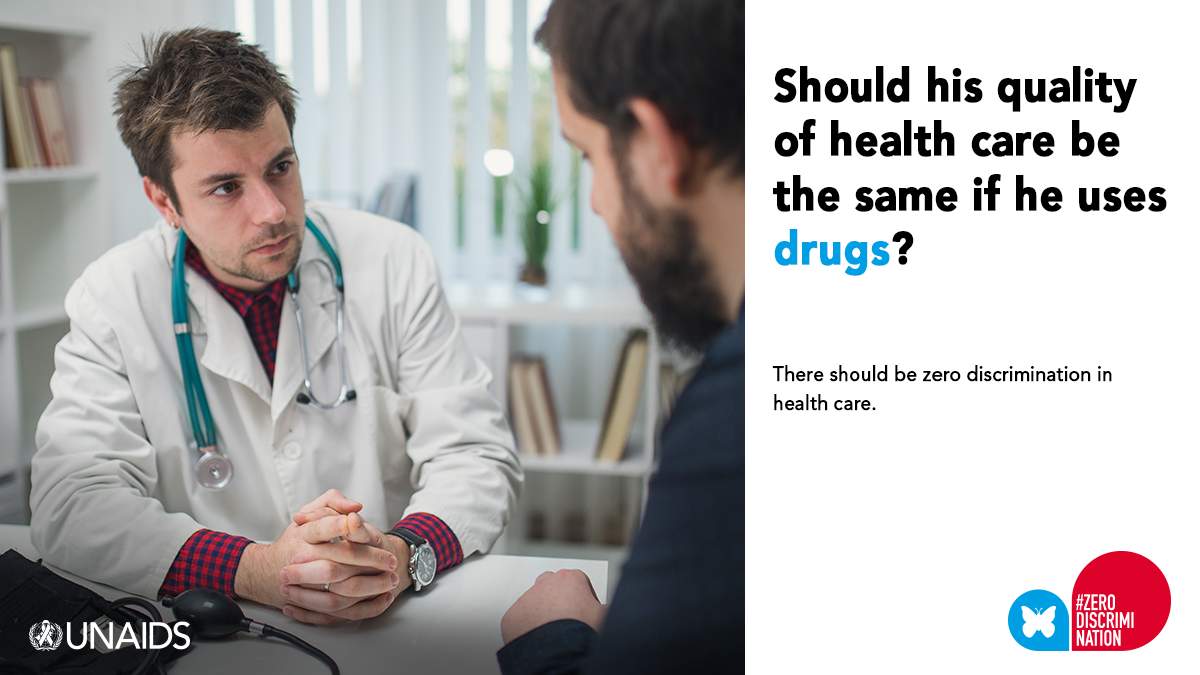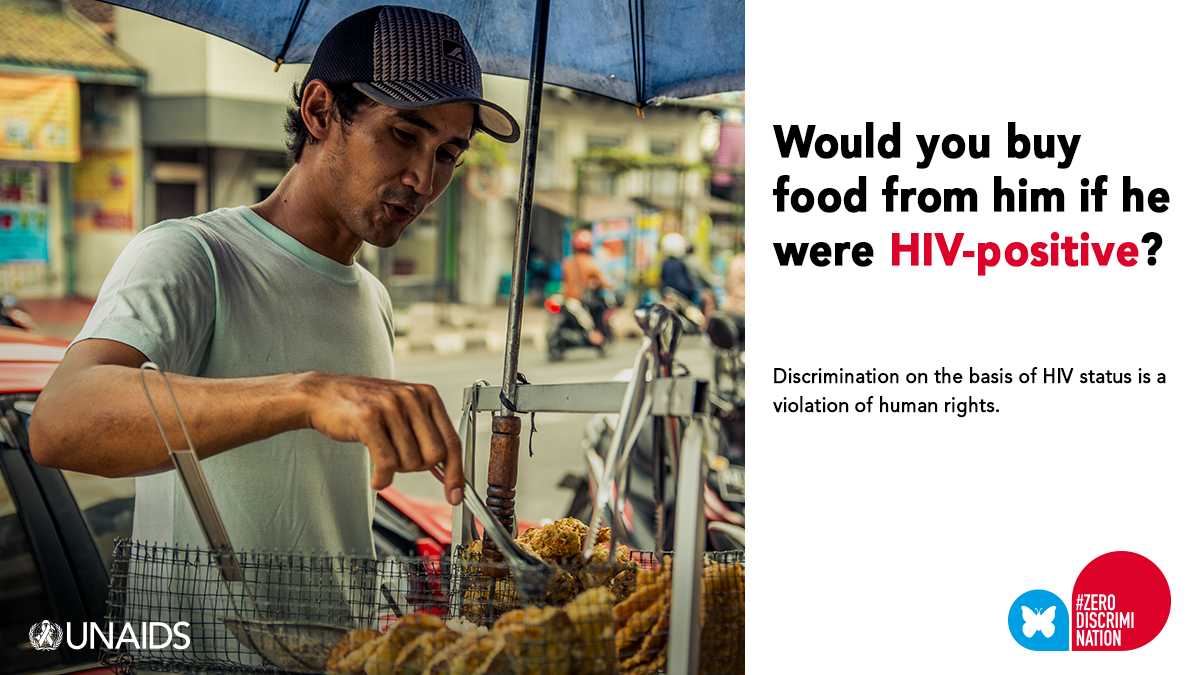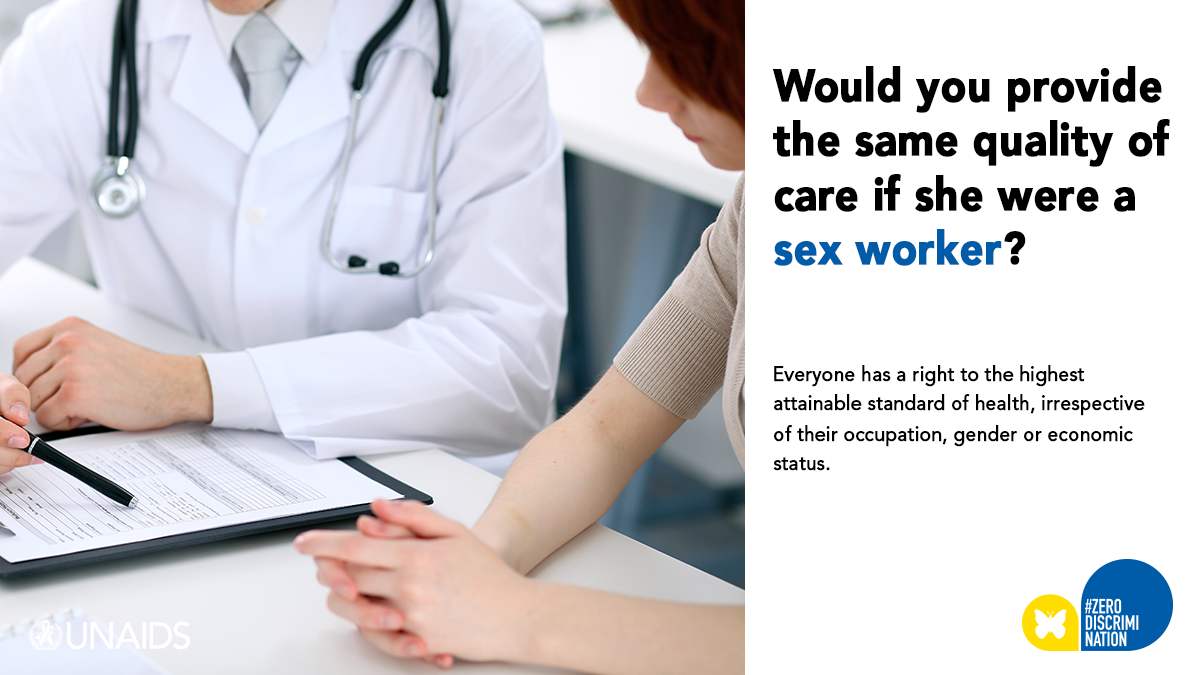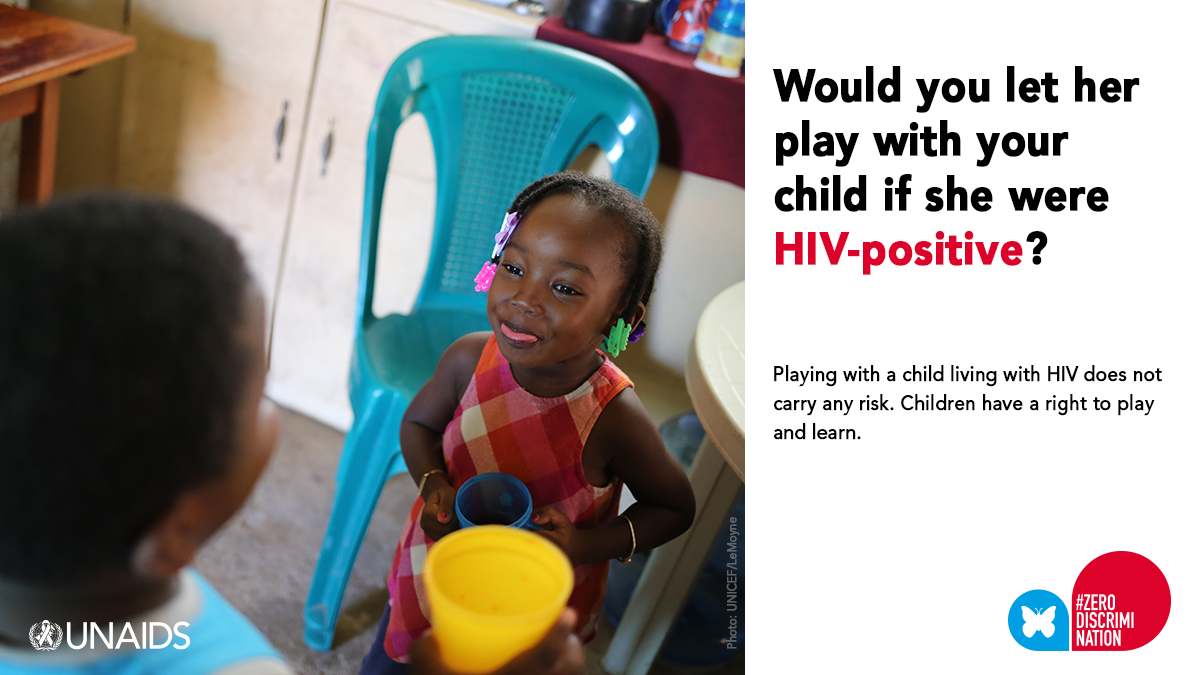01:11
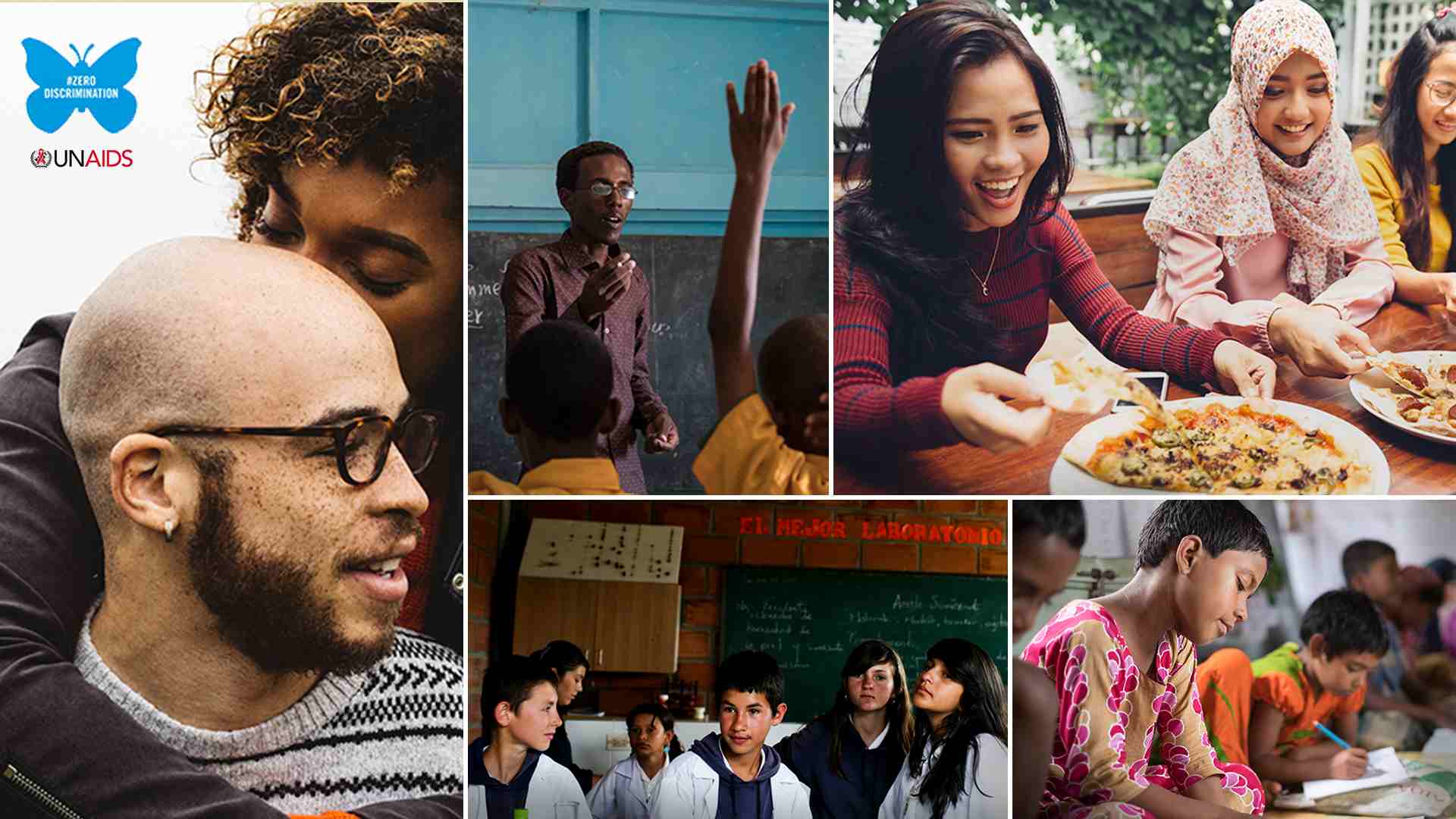
Would you want him on the team if he were gay? Would you take her out of school just because she is a girl? Should his quality of health care be the same if he uses drugs? Would you buy food from him if he were HIV-positive?
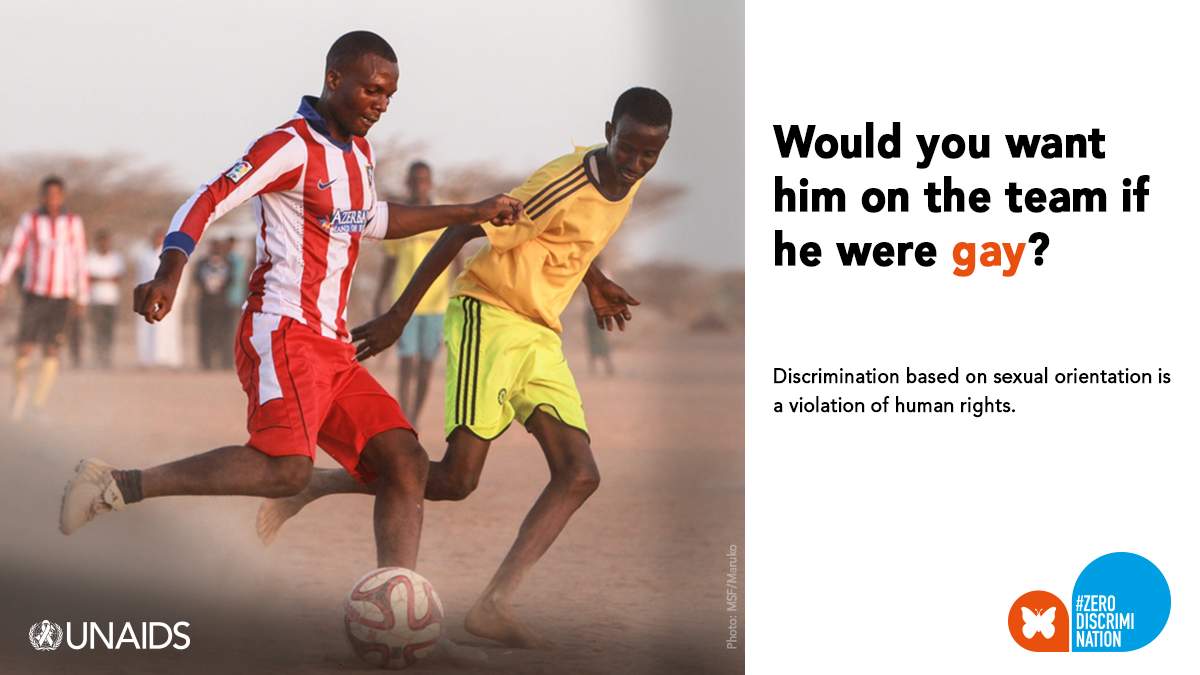
UNAIDS campaign posters for Zero Discrimination Day spreading awareness about discrimination prevalent across the world. /Photos via UNAIDS
UNAIDS campaign posters for Zero Discrimination Day spreading awareness about discrimination prevalent across the world. /Photos via UNAIDS
These are just a few of the questions raised in the UNAIDS campaign posters to spread awareness about some of the discriminations prevalent across the world. The campaign arrives as the UN agency marks the sixth Zero Discrimination Day today.
"On March 1st, Zero Discrimination Day, UNAIDS is focusing on the need to act to change laws that discriminate. All over the world people are unable to live with dignity because of laws and practices that discriminate," UNAIDS Executive Director Michel Sidibe said.
The day was first observed on March 1, 2014, following an inaugural event hosted by UNAIDS in Beijing on February 27 of the same year, to celebrate diversity and reject discrimination in all its forms. The day also acknowledges that discrimination continues to affect millions of people around the world.
"Discrimination is often based on misinformation or fear of the unknown. By reflecting on people in everyday situations, on Zero Discrimination Day, March 1, UNAIDS is challenging people to recognize where everyday discrimination takes place and to take action to stop it," UNAIDS stated in a media release.
Would you still love her if she were transgender? Would you provide the same quality of care if she were a sex worker? Would you let her play with your child if she were HIV-positive?
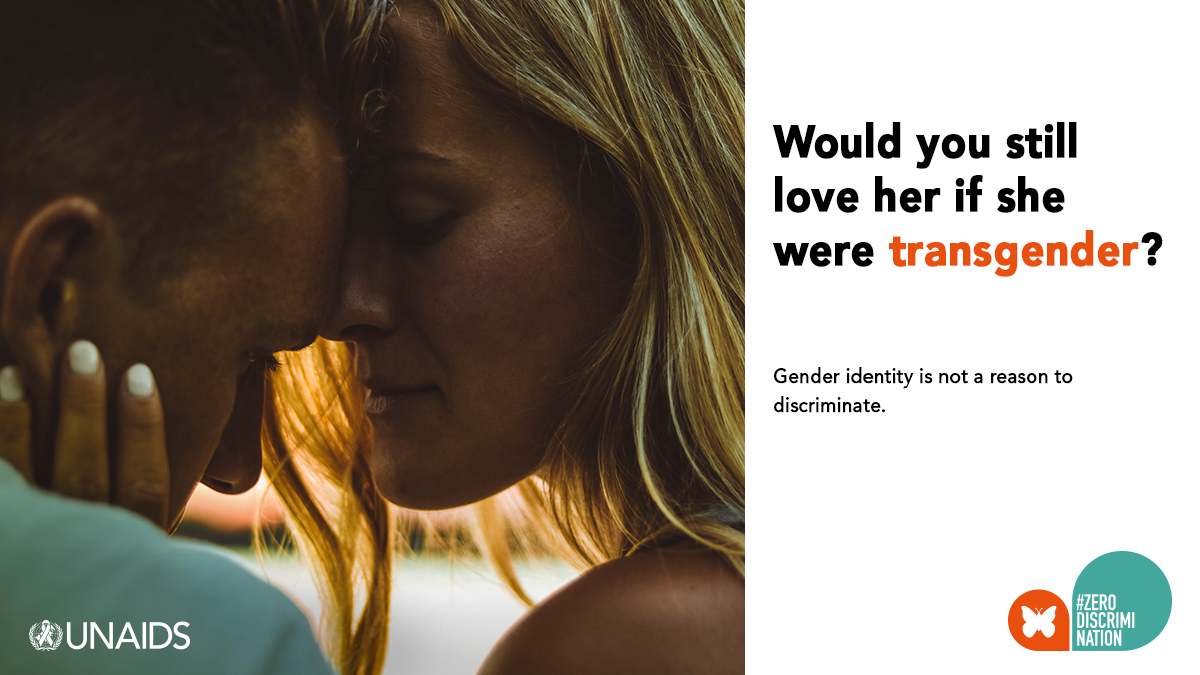
The UNAIDS Zero Discrimination Day campaign posters also seek to emphasize that sexual orientation, gender, healthcare, HIV status, occupation or economic status should not be the cause or reason for discrimination. /Photos via UNAIDS
The UNAIDS Zero Discrimination Day campaign posters also seek to emphasize that sexual orientation, gender, healthcare, HIV status, occupation or economic status should not be the cause or reason for discrimination. /Photos via UNAIDS
In its answers to the questions posed above, the campaign this year emphasized that sexual orientation, gender, healthcare, HIV status, occupation or economic status should not be the cause or reason for discrimination, and stressed the need for amending 'unequal' laws.
"At least 20 countries worldwide still impose travel restrictions on people living with HIV. In 29 countries, women require the consent of their spouse or partner to access sexual and reproductive health services," Sidibe said.
"Laws must protect, not cause harm. All countries must carefully review their laws and policies to ensure equality and protection for all people, no exceptions," he added.
"On Zero Discrimination Day and every day, let us act together to change discriminatory laws," Sidibe pledged.
'Moral and legal obligation'
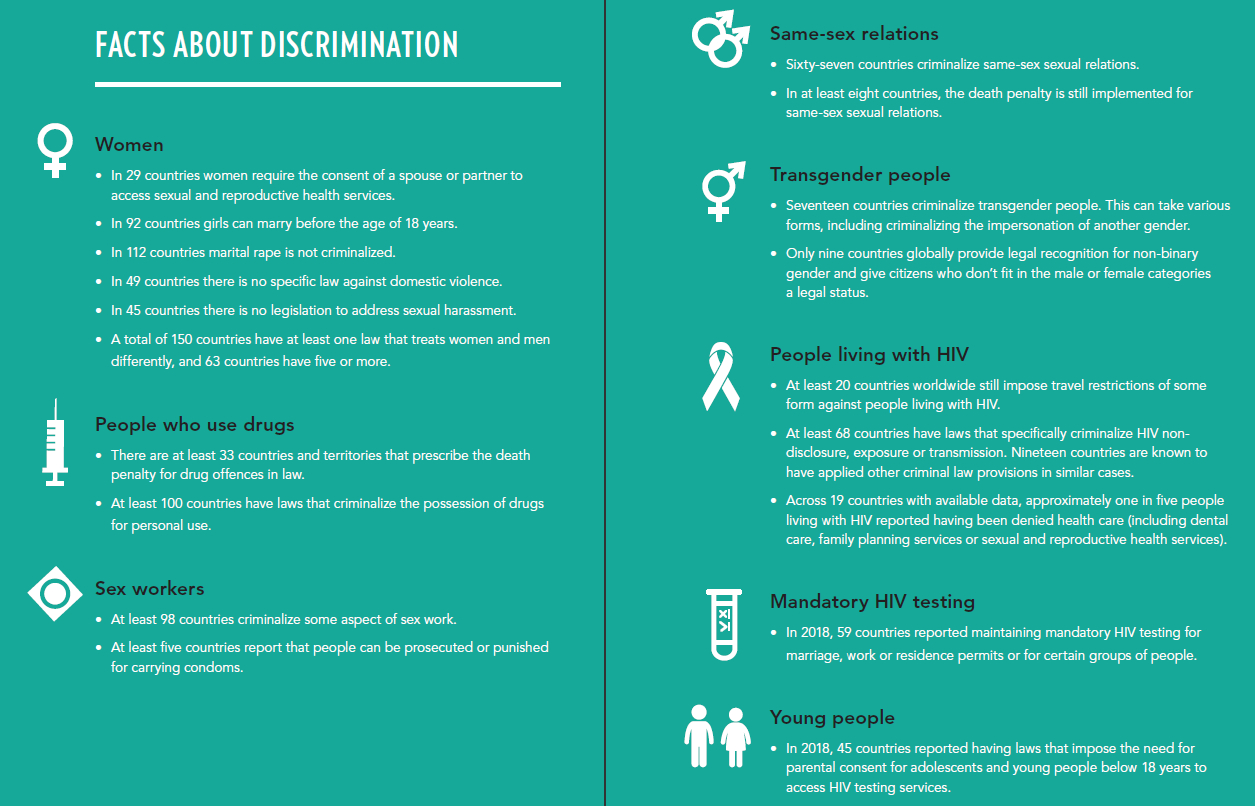
A fact sheet on discrimination as published in UNAIDS campaign document titled "Act to change laws that discriminate" /Photo via UNAIDS
A fact sheet on discrimination as published in UNAIDS campaign document titled "Act to change laws that discriminate" /Photo via UNAIDS
Ahead of the Zero Discrimination Day, UNAIDS released a campaign document titled "Act to change laws that discriminate".
Highlighting a range of discriminatory practices, the document pointed out that in many countries, laws result in people being treated differently, excluded from essential services or being subject to undue restrictions on how they live their lives, simply because of who they are. "Such laws are discriminatory – they deny human rights and fundamental freedoms," it stressed.
The document also explained how people may experience more than one form of discrimination. "A person may experience discrimination because of his or her health status and because of his or her race, gender identity or sexual orientation, compounding the effects on the individual and the wider community."
On one hand, laws – including those on sex work, same-sex sexual relations, the use or possession of drugs for personal use and the non-disclosure, exposure or transmission of HIV – may discriminate by criminalizing conduct or identity.
On the other, laws may prevent people from accessing benefits or services, the UNAIDS document noted. For example, girls may be barred from school if they are pregnant. Women are denied financial services without their husband's permission. Adolescents may require parental consent for health services. People living with HIV may be limited to visiting or residing in certain places.
The agency argues that states have a moral and legal obligation to remove discriminatory laws. It cites the Universal Declaration of Human Rights, various human rights treaties, the 2030 Agenda for Sustainable Development among other international obligations, urging nations to enact laws to fight discriminatory policies.
'Changing the laws'
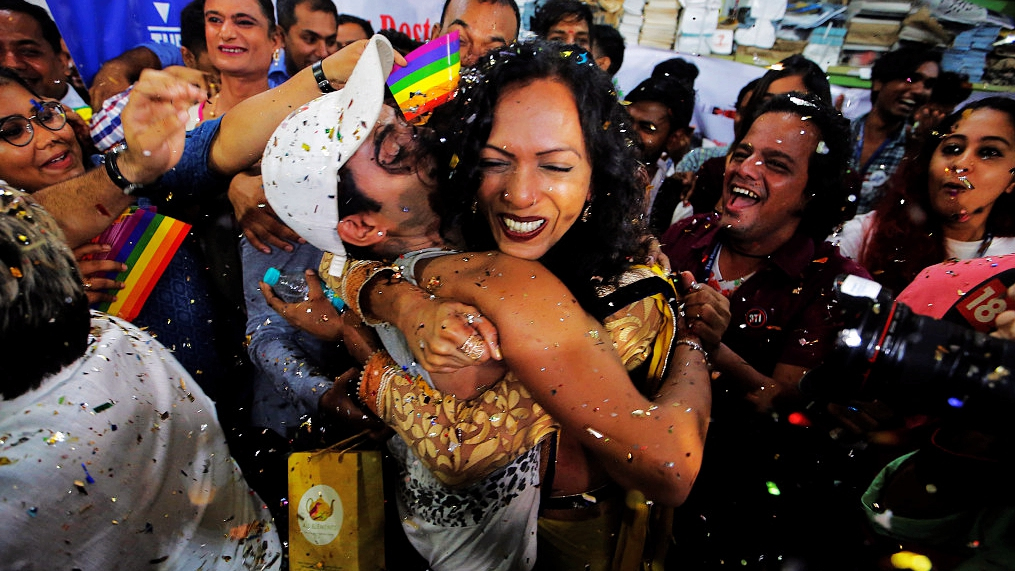
Indian members and supporters of the lesbian, gay, bisexual and transgender (LGBT) community celebrate the Supreme Court decision to strike down a colonial-era ban on gay sex, in Mumbai, India, September 6, 2018. /VCG Photo
Indian members and supporters of the lesbian, gay, bisexual and transgender (LGBT) community celebrate the Supreme Court decision to strike down a colonial-era ban on gay sex, in Mumbai, India, September 6, 2018. /VCG Photo
The UNAIDS cited India, the Philippines, and Malawi as the three countries which took affirmative legal action in 2018 to change the discriminatory response to HIV/AIDS.
Last year, India's Supreme Court struck down Article 377 of the penal code that criminalized same-sex relations. In the Philippines, the age of consent was lowered to 15 years for voluntary HIV testing without the parental permission. Malawi amended its HIV law to remove provisions that criminalized HIV non-disclosure, exposure, and transmission.
Meanwhile, hundreds of young people came together in the Egyptian capital of Cairo on February 21 to learn how to respond to HIV-related stigma and discrimination and to hear about how the HIV epidemic affects Egypt and the role that young people can play in the AIDS response, according to a UNAIDS press release on Wednesday.
"The burden of the epidemic is higher on young people. In Egypt, it is for young people to lead the HIV response," said Walid Kamal, Egypt's National AIDS Program manager.
During a discussion on stigma and discrimination, people living with HIV shared some of their testimonies and experiences, helping to give the participants a deeper understanding of how stigma and discrimination affect those living with HIV.
"It is our responsibility to help people living with HIV feel part of the community," said one of the participating young people.
"It is not only about AIDS, but it is also about social justice, equality, the empowerment of women and promoting healthy gender norms," said Ahmed Khamis, the UNAIDS Country Manager for Egypt.
The participants at the event, jointly organized by UNAIDS and Egypt's National Aids Program, also learned how to plan, design and implement online awareness and advocacy campaigns on social media, the release said.



